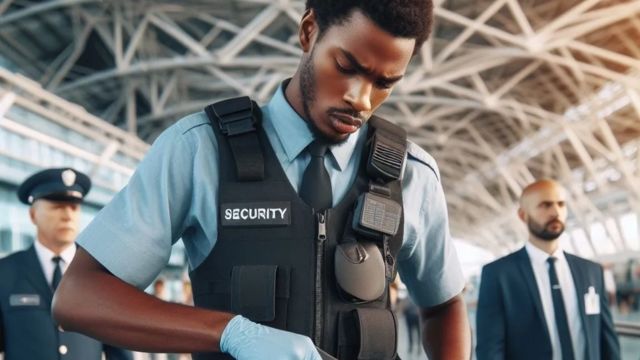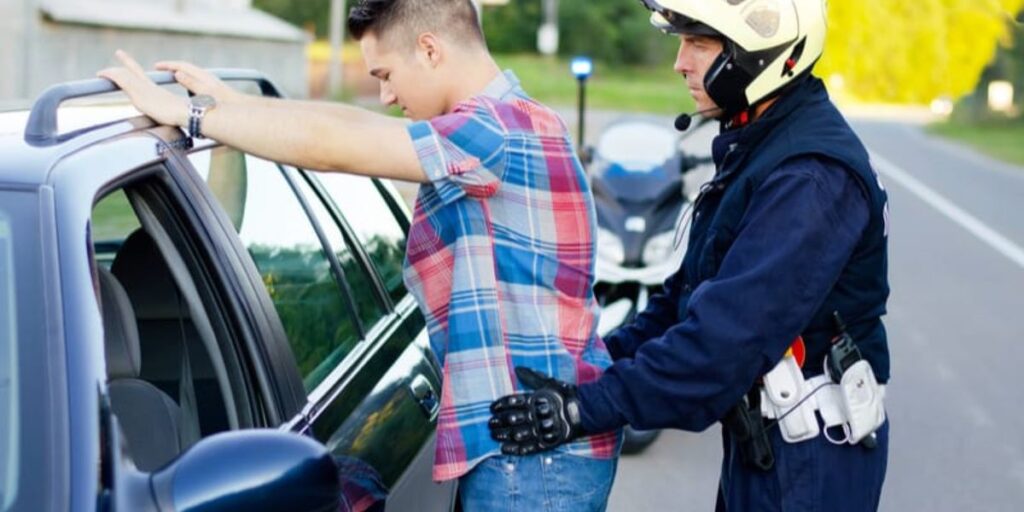GBBC –
If you’ve ever been stopped by the police in New Jersey or any other state, you might wonder about your rights when it comes to searches.
Specifically, can the police search your bag without a warrant?
In short, the answer isn’t always straightforward, as it depends on various factors, such as the circumstances of the stop and the behavior of the police officers involved. Here’s a breakdown of the key points you need to know about police searches in New Jersey and when they might or might not require a warrant.
1. The Fourth Amendment and Your Right to Privacy
The Fourth Amendment of the U.S. Constitution protects citizens against unreasonable searches and seizures. This means that, generally, the police must have a valid reason or a warrant to search you or your property, including your bag. However, there are several exceptions to this rule where a search may be conducted without a warrant.
2. Consent Searches
One common exception is when you give consent. If the police ask to search your bag and you agree, they don’t need a warrant. It’s important to note that consent must be voluntary, and you have the right to say no. If the police tell you they don’t need permission to search, you should still feel free to refuse. However, if you do consent, the police are within their rights to proceed with the search.
3. Searches During an Arrest
If you are arrested, the police generally have the right to search you and your belongings—this includes your bag—without a warrant. This is known as a “search incident to arrest.” The idea is that when someone is taken into custody, the police need to ensure they don’t have any weapons, evidence, or contraband that could pose a danger or be hidden. So, if you’re being arrested, police can search your bag as part of the process.
4. Probable Cause and the “Plain View” Doctrine
Police officers in New Jersey can also search your bag without a warrant if they have probable cause to believe it contains evidence of a crime. Probable cause means that, based on the facts and circumstances, a reasonable officer would believe a crime has been committed or that evidence of a crime is present.
For example, if an officer sees something suspicious in your bag or smells something that gives them reason to believe you’re carrying contraband, they might have enough cause to search your bag without a warrant. Similarly, if the police observe something in plain view (such as a weapon or illegal drugs), they can seize it, and in some cases, search your bag without needing a warrant.
5. Vehicle Searches and “Search Incident to a Lawful Stop”

In cases where the police stop you in your vehicle (for example, for a traffic violation), they may have the authority to search your bag if they have reason to believe it contains illegal items. Under the “search incident to a lawful stop” doctrine, the police can search your vehicle and any personal belongings inside (like a bag) if they have reasonable suspicion or if the search is related to the violation that led to the stop. However, in the absence of probable cause or reasonable suspicion, police may need a warrant to search your bag in your car.
6. Terry Stops and “Stop and Frisk”
If you are stopped by the police under the suspicion that you might be involved in criminal activity, they may conduct what’s known as a “Terry stop.” In these situations, police can perform a limited frisk (pat down) to ensure you don’t have any weapons. While this is generally limited to outer clothing, if the officer feels an object in your bag or pocket that they believe could be a weapon or contraband, they may seize it and search further. This search is limited in scope and based on the officer’s reasonable suspicion.
7. School Searches
In schools, the rules are slightly different. The courts have ruled that school officials and police officers working within a school environment can search a student’s bag without a warrant under certain conditions. In New Jersey, these searches typically need to be based on reasonable suspicion that the student is violating the law or school rules, but they don’t always require a warrant. These searches are meant to protect student safety and maintain a learning environment.
8. The Role of New Jersey State Law
GBBC –
While federal law (such as the Fourth Amendment) plays a significant role in protecting citizens’ rights, New Jersey state law also outlines specific circumstances in which searches can be conducted without a warrant. For example, New Jersey law provides specific rules regarding searches during traffic stops, while also respecting individual rights. As always, it’s essential to consult a legal professional if you feel your rights have been violated during a police search.
9. What Should You Do if You Feel Your Rights Are Violated?
If you believe the police searched your bag without a legal reason, it’s important to stay calm and cooperative. You are within your rights to ask if you are being detained and why the search is occurring. If you believe your rights were violated, do not resist the search at the moment—doing so can lead to additional charges. Instead, you should consult an attorney as soon as possible. They can help you determine if the search was legal and guide you on how to proceed with any complaints or legal actions.
In New Jersey, as in the rest of the country, police generally cannot search your bag without a warrant unless certain exceptions apply. These include situations where you give consent, are under arrest, or if there is probable cause to believe your bag contains evidence of a crime. Knowing your rights during a police stop or search is essential to protecting yourself and ensuring law enforcement follows proper procedures.
If you find yourself in a situation where your bag is searched without a warrant, it’s important to stay calm, ask questions, and seek legal advice if you believe your rights were violated. Understanding these legal nuances can make all the difference in protecting your constitutional rights.




More Stories
Without! Can Police Search Your Bag in New Jersey Without a Warrant? Here’s What You Need to Know
Without! Can Police Search Your Bag in New Jersey Without a Warrant? Here’s What You Need to Know
Without! Can Police Search Your Bag in New Jersey Without a Warrant? Here’s What You Need to Know